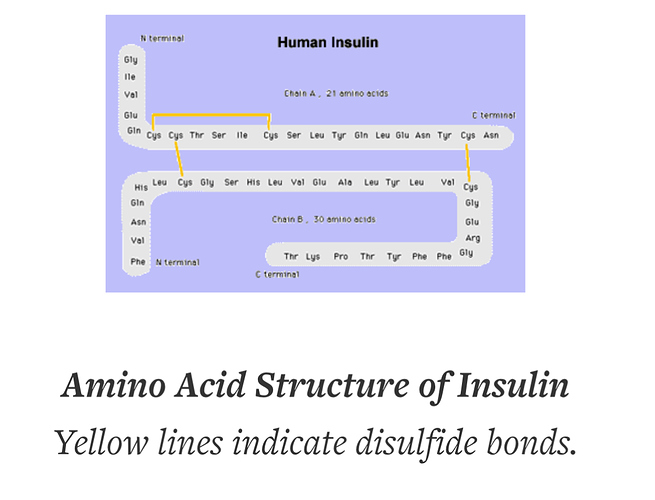Some thoughts:
If you look at how HFCS does NOT spike insulin (glycemic response) but rather, the liver turns/converts this type of sugar (corn starch-{streptomyces bacterium}-into-sugar rather than chemically processed) DIRECTLY into VISCERAL FAT when you eat (while punching holes into the intestinal tract in the process) it, rather than cellular receptor absorption (glucose tolerance?) and insulin burning up the excess?
With the ketogenic diet (cycling type IF e.g. one or two meals a day at the same time of day i.e. circadian hook), the rate of insulin clearance speed would improve because your not spiking ONE TYPE* of insulin constantly, and residual insulin is cleared also and not sticking to the receptors like glue[1] (glycation of insulin itself i.e. too much dietary sugar mixed with amino acids bonding with fatty acids via glucose = a double whammy?); blocking what little glucose being ingested from being absorbed and digested by the cells along with a balanced uptake of ketones for energy?
*Insulinigenic diversity & flexibility: GLUCAGON<===>IGF-1<===>INSULIN<===(SAD diet)
SAD DIET===>STRICT HIGH GLUCOSE METABOLISM===>TYPE OF INSULIN (diabetes)?
So, if natural, organic and lightly processed Stevia et al. does in fact spike a glycemic response VIA insulin? That’s what we want, rather than the latter?
If a processed substance or compound IS NOT spiking insulin (glycemic response)? That’s what I would be worried about? (e.g. …you been doing keto for X amount of time and a heavy artificial sugar/sweetener user? …and you end up with a FATTY LIVER, but no research to support that conclusion? It is easier to blame the ketogenic diet LCHF?)
Notes:
- “…One of the body’s major detoxification pathways is through sulfur conjugation. …” …Sulfur is a component of insulin, the protein hormone secreted by the pancreas…” “…The OXIDIZED (inorganic) form of sulfur is SULFATE. Dietary sulfate is poorly absorbed. Instead sulfate is produced in the body primarily by oxidation of the sulfur-containing amino acids…” “…NOTE: I have observed that most people who are sensitive to the sulfates and sulfites can become non-sensitive to these forms of sulfur if they supplement their diets with a source of water-soluble sulfur like MSM (methyl-sulfonylmethane). Sulfur Metabolism Key to Detoxification of Allergens. …” …More
- Dimethyl Sulfone (MSM)


